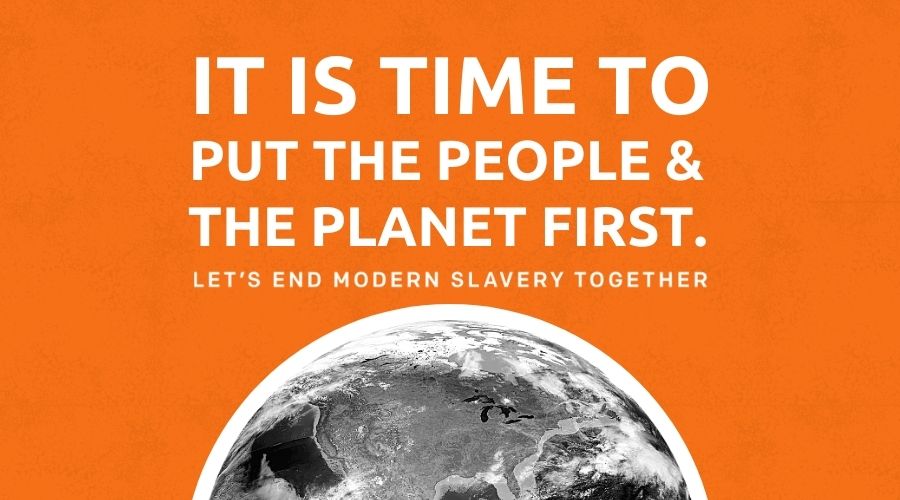The bitter truth about chocolate
From Freedom United

| Chocolate. It’s a sweet treat that many of us indulge in. But your M&M’s, KitKat, Ferrero Rocher, Mars Bar, Cadbury, Lindt, and Godiva chocolate has a disturbing link to child slavery in the West African cocoa industry. Child exploitation has plagued the cocoa industry in Côte d’Ivoire and Ghana— which together produce 60 percent of the world’s cocoa[1]—for decades. Despite promises from the world’s largest chocolate companies to eradicate the problem, evidence reveals that they have fallen far short of achieving their goal. |
| ADD YOUR NAME |
Today, we are calling on 10 of the world’s top chocolate companies to take concrete steps to address the gaps in protections and the underlying drivers of child slavery and child labor in the cocoa sector. We are joining Fair World Project and Be Slavery Free in our call. Chocolate industry leaders promised under the Harkin-Engel Protocol nearly 20 years ago to substantially reduce the worst forms of child labor—including child slavery— in the cocoa sector but they have failed to meet that goal.[2] Our new call for action comes in advance of the release of a report by independent research institution NORC at the University of Chicago, examining the prevalence of child labor in cocoa plantations in Ghana and Côte d’Ivoire under the Harkin-Engel Protocol. A leaked early version of the report suggests that despite decades of hype and voluntary corporate efforts, child labor in cocoa production has increased overall. The report also reveals the number of child laborers being exposed to harmful pesticides has increased.[3] Enough is enough. The time to demand slavery—free chocolate is now! |
| SIGN NOW |
At the core of this issue are the unacceptably low prices global chocolate companies pay farmers for their cocoa. Poverty is a root cause of forced child labor; unable to earn a living income whilst hiring adult workers, some farmers have little alternative but to turn to young boys as a source of cheap and exploitable labor in order to produce cocoa. In 2019, the Washington Post reported disturbing accounts of boys being trafficked from neighboring West African countries, such as Burkina Faso and Mali, and controlled by a “big boss” who exploits them.[4] “I admit that it is a kind of slavery,” admitted one cocoa farmer. “They are still kids and they have the right to be educated today. But they bring them here to work, and it’s the boss who takes the money.” The world’s major chocolate companies still cannot fully trace 100 percent of their cocoa, contributing to opaque supply chains and a lack of the transparency that consumers like us deserve. |
| TAKE A STAND |
This is not just a labor issue—it is also about protecting the environment and recognizing the link between child slavery and deforestation. Due to the low price of cocoa, farmers have been squeezed to expand farms, going deeper into forests and sometimes using coercion to force boys into clearing land using machetes to make way for cocoa production.[5] It’s abundantly evident that we need to make clear to chocolate companies that we expect them to act and radically transform their practices in order to root out child exploitation in the West African cocoa sector. Today, we demand these key actions: paying impoverished cocoa farmers living incomes; ending dangerous pesticide use due to the high prevalence of child laborers and huge environmental toll; scaling up child labor monitoring and remediation systems; enactment of human rights due diligence; increasing traceability; and ending deforestation. Chocolate need not be a guilty pleasure—slavery-free chocolate can be a reality. |
Together, we can demand chocolate companies reform for the better, respecting the livelihoods of cocoa farmers and the human rights of children across West Africa.
In solidarity,
Herrana Addisu and the Freedom United team
1] https://www.dol.gov/agencies/ilab/our-work/child-forced-labor-trafficking/child-labor-cocoa
[2] A non-binding international agreement negotiated by U.S. Senator Tom Harkin and U.S. Representative Eliot Engel that aims to end the worst forms of child labor in the production of cocoa. It was signed in 2001 and is due to expire in 2020.
[3] http://www.iradvocates.org/news/nestle/department-labor-study-child-labor
[4] https://www.washingtonpost.com/graphics/2019/business/hershey-nestle-mars-chocolate-child-labor-west-africa/
[5] https://www.washingtonpost.com/graphics/2019/national/climate-environment/mars-chocolate-deforestation-climate-change-west-africa/





